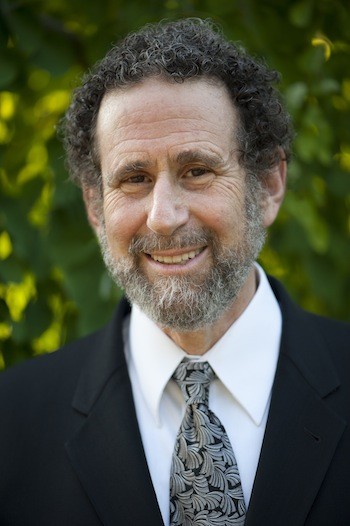13 Small Choices That Can Change Your Life In Great Ways.

While practicing neuropsychiatry and studying neuroscience for 40 years, my interest expanded from the human brain to include evidence of mind throughout nature—in animals, plants, microbes, and other cells. Amazingly, even plants and cells have intelligence, which means that science isn’t all we’ve been taught to believe.
From my decades of research, there are simple important things that I wish everyone knew. Some of these small choices and new ways of looking at the world could change your life in great ways.
1. Get plenty of sleep.
Sleep is more important than most people realize. During sleep, the brain cleans debris between cells and memory is increased. This is why, when studying, it’s not useful to pull all nighters. Instead, study intensely and then sleep some. (Otherwise your brain won’t be able to retain the information.) In our 24/7 culture, it’s critical for brain health to average a good amount of sleep each night.
2. Take naps.
Napping can increase memory and creativity. It allows a break to any creative logjams, new ideas, and consolidation of learning. If you don’t have time to doze at your desk, daydreaming can also lead to increased creativity.
3. Choose to change your memories.
Memory is not fixed. It changes each time we re-remember some event. Therefore, the emotional impact of traumatic memories can be altered with positive input during the 24-hour window that “reloads” the memory. This period of time after remembering an event should be used to bring some compassion to the painful subject. How can you do this? When re-remembering the event, try to also focus on the feeling of your own self worth and others’ love.
4. Get regular exercise.
If there is one magic bullet for increased body and brain health, including increased memory, it is sensible regular exercise. Too much or too little exercise can be harmful, but a moderate amount is critical for brain function. Although it has been known for some time that exercise increases brain connections and new brain cells, recently, a direct chemical link was found to explain this. Turns out the brain is especially available for new learning and positive new ideas in the hours immediately following exercise.
5. Food can have major effects on brain health, so eat whole foods.
When eating certain foods (including processed foods, sugar, and unnatural ingredients), our hormones and neurons react strongly, as if exposed to a drug. When strong reactions are triggered, the metabolism and brain can become imbalanced. Many fruits and vegetables (such as berries) have very beneficial effects in helping to clean debris from the brain.
6. What we think and what we focus on can actually change our brain.
For a long time, scientists believed that the brain was static after childhood. It was also believed that genetics was destiny. While most of our DNA stays the same during out lives, the networks that determine which DNA is used are completely altered by experience—by our perceptions and choices.
Neuroplasticity is the word for dramatic brain changes in the synapses of neurons, new brain cells, and changes in other supportive brain cells. These changes occur each day with modification and pruning each night during sleep. How we use our brain—what we think, what we learn, what we focus on, and what we do—will actually change brain structures for the future.
Certain activities have much stronger effects on stimulating neuroplasticity, such as music training, which increases the capacities for even other types of learning.
7. Loneliness is terrible for your immune system, so nurture your relationships.
Short-term stress is useful for learning and does not harm the immune system, but long-term stress can cause inflammation and illness. Isolation and loneliness have a negative effect on the immune system including increased inflammation.
Surprisingly, people who are imprisoned and secluded, but still feel close to someone, did not suffer negative consequences to their immune system. In other words: just caring about another person can have strong benefits.
8. For the sake of your immune system, be generous and support your community.
Generosity and community service have positive effects on the immune system. Research shows that generosity and concern for people, not objects, helps positive immune response. Recently, a study showed that community service increased happiness, which in turn decreased factors related to inflammation. These benefits were not associated with other happiness-inducing activities, such as shopping, or travel, for example.
9. Believe in your capacity for extraordinary experiences and talents.
Recent research showed that out-of-body experiences could be triggered in normal people using virtual reality equipment. Other research shows that religious/spiritual experiences can, also, be triggered in many people by many different means. Surprisingly, the capabilities of savants—who display advanced mathematical, memory, artistic and music capabilities without training—can be triggered in ordinary people who have brain injury or with magnetic/electric brain stimulation. This appears to work because one brain region suppresses another and, when unsuppressed, it releases these abilities. These talents are not manufactured, but exist and need to be released. The takeaway? Don’t limit yourself.
10. Know that animals are far more intelligent than most scientists realize.
Those who know animals understand this. Evidence shows very advanced cognition in animals even with very small brains. Birds and lizards are, in fact, extremely intelligent—with advanced memory, planning, social intelligence and tool use. Birds also use syntax, learn singing as a language, and show mourning behavior. Perhaps most extraordinary are bees (and other social insects) who, with tiny brains, have symbolic language, abstract concepts, self medication, advanced mathematical problem solving, and kaleidoscopic visual memory.
Knowing how intelligent animals are, hopefully, could make us more compassionate and empathetic to all animals and, especially, those that depend upon us. Perhaps with this knowledge the ways we utilize and kill animals can change.
11. You can find intelligence throughout nature in all organisms—animals, plants, even cells and microbes.
Plants show advanced decision-making, complex communication, future planning, and even mathematical abilities. Realizing that even plants are highly intelligent, perhaps, we can appreciate the wisdom of Chief Seattle—that nature around us is our family. Perhaps it will make us treat our environment with more compassion and intelligence.
12. Make time to walk in nature.
Walking in nature has positive effects on the brain and our health. Research shows that just being in nature is like mental cleansing or fasting.
13. We’ve got free will, so use it!
Free will and consciousness must be exercised. Most of what occurs in the brain and mind is unconscious, with the brain unconsciously regulating our body at all times. Many do not make the effort to be conscious; and many scientists want us to believe human brains are robots and computers.
Each person is bombarded by huge amounts of suggestions from media and other people in our 24/7 environments. It is difficult not to fall prey to random suggestions and believe and act upon them. Untrue gossip can totally affect how we feel about someone. Random suggestions create negative thinking and cause immune problems. This is unconscious behavior.
Conscious free will does exist, but must be found and exercised. It is like training a new muscle. The choices we make have dramatic effects on the growth and health of our future brain. Practices like meditation increase the ability to use conscious choice and, also have many positive effects on physical and mental health. By utilizing conscious will in exercises, it becomes stronger and we become more able to make good choices.
